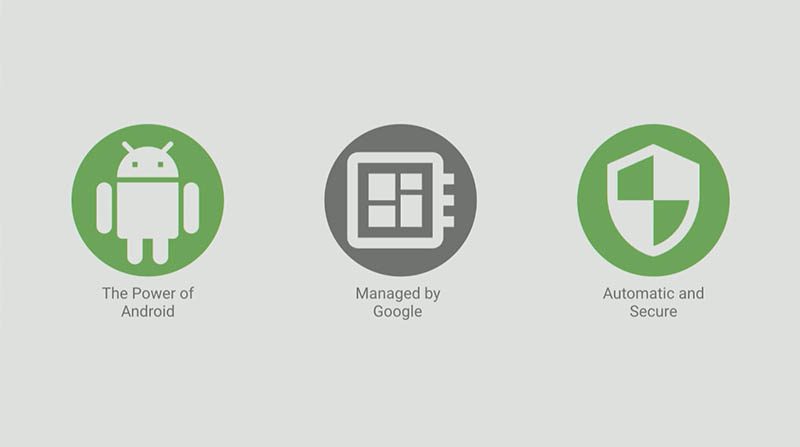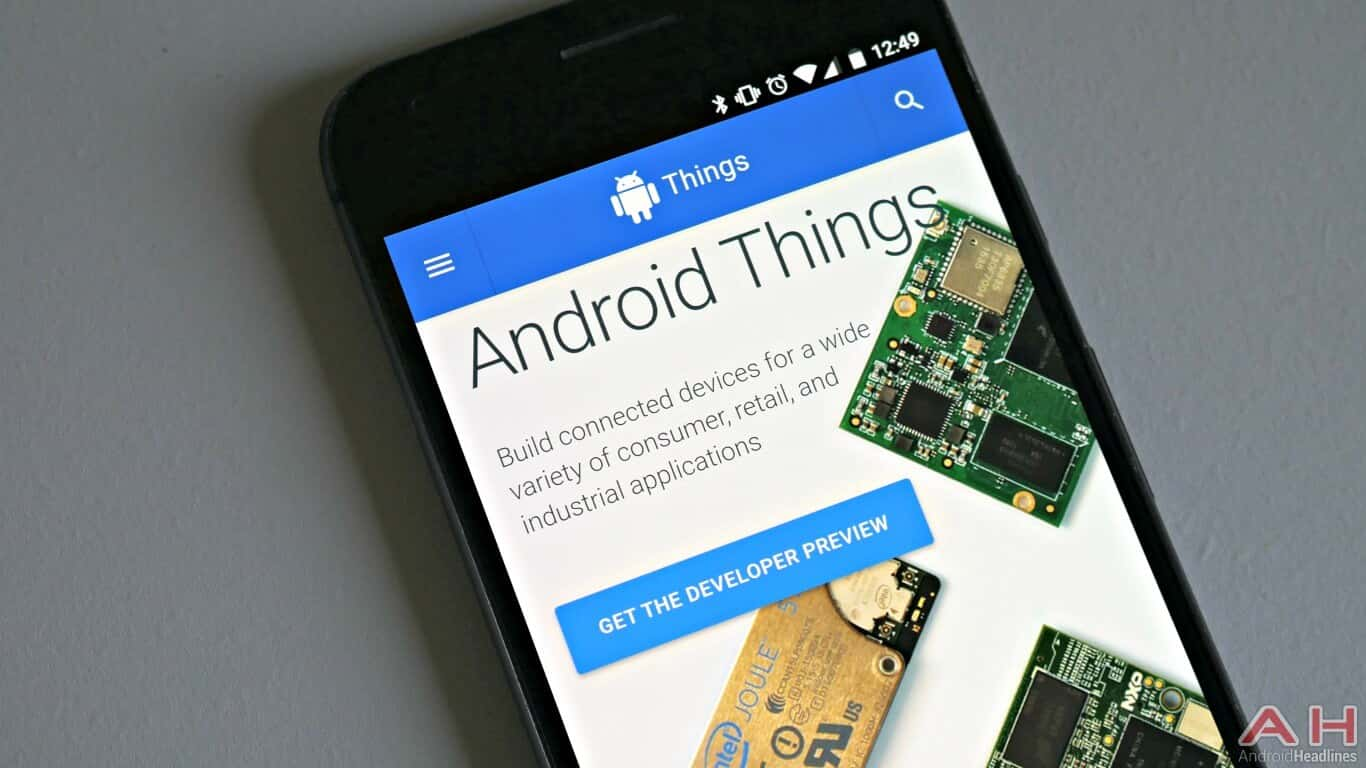Google announced the release of the first version of the Android Things on 7th May, 2018, one day ahead of Google I/O 2018, their annual developer conference.
Let’s look at what is ‘Android Things’ and how it’s going to add value to the current the IoT market.
What is Android Things?
With Android Things, Google plans to establish its foothold in the IoT world. Android Things is a ‘managed Operating system ( OS)’ , developed for IoT devices like smart locks, smart thermostats & more.
It provides the necessary software and hardware frameworks, required to develop IoT enabled products at scale.
In Google’s own words, Android Things lets the IoT developers “Develop apps for devices with existing Android development tools, APIs, and resources along with new APIs that provide low level I/O and libraries for common components like temperature sensors, display controllers, and more.”
What Constitutes an Android Things:
The Android Things , in a nutshell , comes with a well- optimized OS that can work on any hardware platform and run on any low-powered devices, Google-certified back-end infrastructure ( hardware) , along with a system to ensure regular software and security update for the connected devices.
Android Things can be enabled on any device which you might have never imagined of. From the regular home appliances to highly critical equipment in manufacturing units, the android things can work with any device connected to internet and all the other places where the current IoT applications work.

What are the Benefits of Android Things?
For Google : Android Things has the potential to become an additional channel for data collection. This can enable Google to understand user-behavior better. Thus Google will be able to deliver more personalized and context-driven advertisements to its wide user base.
For businesses: Android Things might bring down the overall cost of IoT application development. This is because Android Things framework can serve as an application which can run on any hardware and businesses just need to build new applications on top of this. This will decrease the overhead cost and improve the productivity.
For Android Developers: In the current setup, the responsibility to provide regular security updates to the Android devices is with Google, rather than the developers themselves.
This means as and when a security patch is released for android, all the devices working on Android Things will immediately receive it. This will eliminate the delay in updating the smart devices.
Additionally, the developers can focus entirely on product development rather than bothering about security updates now and then.
How Does Android Things Add Value to the Current Scenario?
At present, most of the IoT applications for different devices are designed following different architecture and this leads to compatibility issues.
Universal Platform for IoT: With Android Things, Google aims to provide a universal platform for IoT application development. A platform that can be compatible with all smart devices and ensures a secure environment
Thus, Android Things stand for a secure Internet of Things where all the connected devices are able to communicate and work together in the same method without any compatibility issues.
Guaranteed Hardware support: With the release of Android Things 1.0 , Google extends support for new System-on-Modules (SoMs) based on a broad range of hardware platforms including NXP i.MX8M, Qualcomm SDA624, Qualcomm SDA212, and MediaTek MT8516.
The SoMs are not only certified for production use, but also come with a guaranteed support for three years. This is bound to help IoT product development community to-go- to market in a faster and hassle-free manner.
Tackling the security challenges: One of the major concerns with any internet connected device is security. With Android Things, Google is set to address the security challenges associated with connected devices through regular security updates along with a long term strategy for software update support.
- With Android of things, the developers will get three years of free support from Google for stability fixes and security patches, with additional options for extended support.
- Google will be taking care of the system image, updates, and fixes with its back-end infrastructure, freeing the developers so that they can focus on product development. Also, using Android Things Console, the system updates and the app updates can be easily pushed to the (connected) devices.
- As of now, Google has put a limit for Android Things console usage for software updates up to 100 active devices intended for non-commercial use. Those looking to ship commercial products built on Android Things will have to sign a distribution agreement with Google to do away with this restriction.

Already on the Android Things Bandwagon: Although the official announcement of Android Things was made in May this year, the technology giant has already been building products on Android Things with various hardware firms over the past few months. Some of these products like the Smart Speakers from LG and iHome; the Smart Displays from Lenovo, LG; JBL Link View, will soon be available in the market for commercial use.
With its release, Android Things is expected to transform the IoT market as various business organizations –from startups to the large corporates – are eager to leverage it for a wide range of use cases.
With its advanced software and security features that are set to address the security vulnerability for IoT devices, the future of Android Things is definitely worth looking forward to.
Hope you liked this blog post. What’s your take on this new release from Google? Will it be a value-addition to the current IoT ecosystem?


